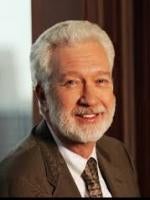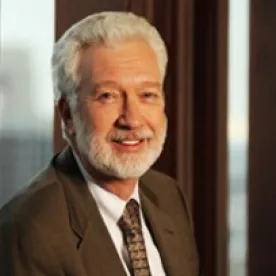Proposal 3 Generates Sparks
The ballot proposal to require 25 percent renewable electric energy by 2025 (Proposal 3) has each side citing conflicting statistics and studies which reach opposite conclusions. The Citizens Research Council of Michigan has a balanced memorandum that sets out the policy issues, but without any projections for impacts or costs. See www.tinyurl.com/25x25CRC. There is also a:
- video of the Ann Arbor SPARK debate on the issues at www.tinyurl.com/25x25VIDEO;
- study in support of Proposal 3 by the Land Policy Institute at www.tinyurl.com/25x25FOR;
- study in opposition to Proposal 3 by Public Sector Consultants at www.tinyurl.com/25x25CON.
Meanwhile, 2010 records show that Michigan electric power producers spent $1.3 billion buying outof- state coal. Proposal 3 has picked up the endorsement of the UAW and former Governor Milliken. Governor Snyder has posted a one-minute video at his official governor website opposing Proposal 3. November 6 is election day. All municipal offices will be open Saturday, November 3, for in-person early voting by absentee ballot.
Detroit Edison is Looking for Large Solar PV Installation(s)
Detroit Edison has issued a Request for Proposal to purchase one or more large solar photovoltaic installations. The size may range from 500 KW to 2 MW. The two part process will first identify potential sites and then seek design and pricing information for selected sites. Sites must be fullservice bundled Detroit Edison electric customers, with preference given to projects in Detroit. This is part of Detroit Edison’s SolarCurrents program which has as its goal 15 MW of photovoltaic generation by 2015. Bids are due by December 21.
PPA for Tuscola Bay II Wind Farm
Detroit Edison has submitted for ex parte approval its Power Purchase Agreement with Next Era Energy for the 100 MW Tuscola Bay II Wind Farm. Commercial in-service is expected at the end of 2013. The PPA is a result of the company’s May 2012 Request for Proposals for which Detroit Edison received 17 wind energy proposals. The filing indicates that the 20-year PPA has pricing “of up to $70.45 per MWh net energy delivered.” The Michigan Environmental Council has objected to any ex parte (without a hearing) approval of the pricing, and has objected to the extensive redactions (blackout) of PPA provisions, asking that the entire PPA be made public.
Start-up for Biodigester in Fremont
The grand opening of NOVI Energy’s Fremont Community Digester occurred on October 10. The project, which will convert 100,000 tons of organic waste to electricity annually, will sell 3 MW of electricity to Consumers Energy. The levelized price for the electricity will be 14.08 cents/kWh. The $22 million project secured a loan guaranty through the U.S. Department of Agriculture’s Biorefinery Assistance Program. This will be the first large-scale anaerobic digester in the U.S. to take organic waste from multiple waste streams. It will produce biogas as fuel for two reciprocating engine generators.
Holland Solar Manufacturer has Global Reach
Solar Street Lights USA of Holland has been in business for only 3.5 years, but is selling its products worldwide. Its American-made products have been ordered and installed in the U.S., Guam, Nepal, Trinidad, and Jamaica. With five patents, the company produces power devices ranging from solar streetlights to remote solar electric sources to solar powered LED bollards, utilizing marine battery technology for energy storage.
Depreciation Methodology for Wind Turbines Challenged
In late 2012 the Michigan State Tax Commission changed the rate at which wind turbine assets would be depreciated for property tax assessment purposes. Now five counties (Huron, Sanilac, Gratiot, Mason, Tuscola) are working together to challenge the change. The group, The Michigan Renewable Energy Collaborative, wants to assess wind turbines at a value higher than allowed by the change.
Comments Due on Net Metering and Interconnection Issues
The Michigan Public Service Commission has requested comments on the forms and procedures for net metering and interconnecting of self-generation by 5 p.m. on October 30. The Case No. U-15919 Order is directed at Category 1 projects (20 KW or less) and Category 2 projects (between 20 KW and 150 KW). Comments have already been received suggesting the utility submitted interconnection procedures and forms are unduly complicated. Also, it has been suggested that the proposed separate parallel operating agreement be combined with the interconnection agreement for simplicity.
Michigan Shorts
Consumers Energy’s 100 MW Lake Winds Energy Park in Mason County is complete and commercial operation is expected in November NextEnergy has received a $750,000 grant from the U.S. Economic Development Administration to fund R&D improvement at its Detroit facility Holland Board of Public Works has approved a ten-year power purchase agreement for 15 MW of wind energy from the EON project in Elwood, Indiana, and a memorandum of understanding for 20 MW of wind energy from Exelon Wind’s Beebe Community Wind Farm near Ithaca. The Michigan Public Service Commission has directed investor-owned utilities to allow customers to “opt out” of smart meters under approved tariffs based on cost-of-service principles Consumers Energy customers used more energy this summer than any previous summer Energetx Composites of Holland started shipping its first utility scale 45 meter wind turbine blades in September. The S.S. Badger extended its sailing season from October 14 to November 2 to transport 60 wind tower sections from Manitowoc to Ludington for GE Wind Energy The Grand Valley State University wind buoy summer data indicates average mid lake speeds of at least 22 mph in Lake Michigan Ω Recovered Energy Resources has been approved for a 20-year lease at the Atlanta, Michigan, landfill to construct a $27 million gasification plant to process MSW with City of Wyandotte as the potential energy offtake customer.
Iceland Teaches a Lesson
Toward the end of my first-time visit to Iceland I toured a geothermal plant 20 kilometers outside the capital of Reykjavik, a real “busman’s holiday.” I learned that four such plants supply 99 percent of the heating, hot water, and electric needs of the capital. There is enough excess electricity to power an aluminum smelting operation, with ore from Australia and South Africa. This effort serves as a true object lesson for energy policy: use and leverage energy resources that are at hand. In this era of “buy local”, shouldn’t the adage also apply to fuel? Especially if it is free? If there is free fuel, be creative and figure out a way to use it. Why not lock in a zero fuel price? This issue of Watt’s New has examples of local energy derived from Pure Michigan Wind, Pure Michigan Sunshine, and Pure Michigan Biomass. Surely we can learn from Iceland’s lesson and aggressively act on it.




 />i
/>i

